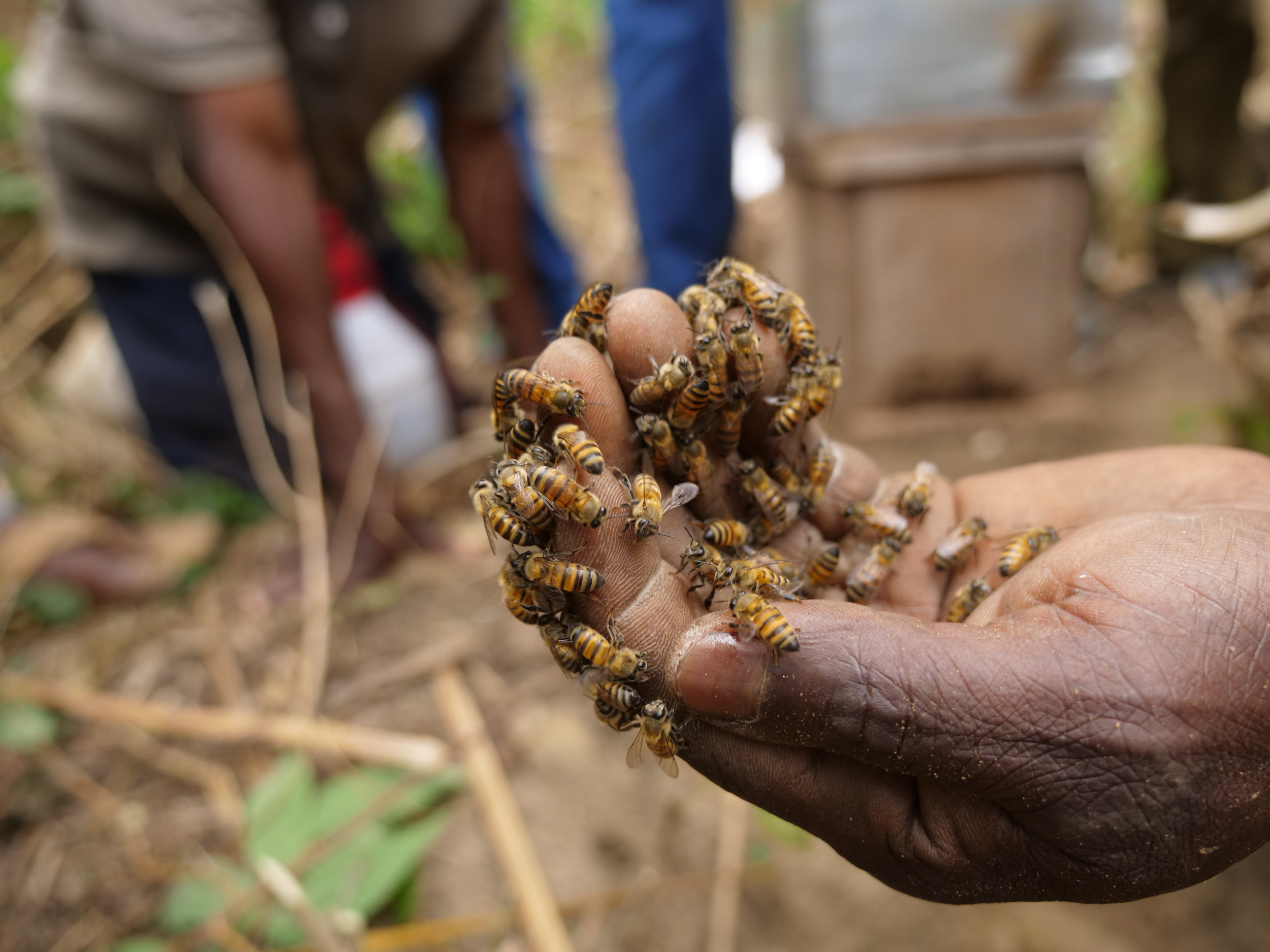Bee a Honey
Help turn honey into money
The Pygmy community of Lotumbe is learning about sustainable beekeeping. They have formed a social enterprise, a Bee Collective. As traditional hunter-gatherers, deforestation is affecting their food sources. By gaining beekeeping and honey production skills, they can help to support themselves.
Learn more about this Honey of an Idea.
The situation
The Pygmy community of Lotumbe live in the world's second-largest rainforest. This is an area greatly affected by deforestation, seriously impacting the Pygmies.
As traditional hunter-gatherers, their lifestyle centres on utilising the resources found in their environment, such as honey, wild mushrooms, and forest animals.
For centuries Pygmies have harvested honey from wild bees. However, with increasing deforestation, the wild bee population is diminishing.
ABOVE: (Top row, L) Men in canoe are Congolese trainers from PLAAC, the nation’s beekeeping NGO, travelling to Lotumbe to introduce sustainable beekeeping concepts. (M) Prof Ken Kobré, centre with camera, captures the action as Bee Collective members travel by canoe to forest area on a quest to capture a Queen bee. (R) Trainees looking for Queen bee in a felled log. Before the training, honey was harvested after burning out and cutting down a tree. Now smokers help remove bees. (Middle row, L) Hand covered with bees - with no equipment, the only option is to handle bees with bare hands. (M) Learning how to make a hive. (R) The trainers: Gerard (l), Toussaint (r) with community development advisor Safari. (Bottom row, L) Blaise and Jean-Bosco are Rotarians who have helped collect bee-friendly plants. (M) A Pygmy beekeeper next to his hive. (R) The Queen bee is carefully carried back to Lotumbe.
The solution
Teaching sustainable methods of honey production and reforestation is helping this population not only provide nutritious honey to their fellow villagers but also maintain the second-largest rainforest in the world.
In addition, selling honey will be a source of income and a means of poverty alleviation for Pygmies in this part of the Congo.
$10,000 is needed to help foster the Bee Collective’s development. A donation of any amount helps!
Bee a Honey
help develop beekeeping
Join us in training Congolese Pygmy beekeepers. Your donation will directly support this food security initiative by:
paying for beekeeping training
purchasing supplies enabling them to make their own bee suits, hives, frames, and smokers
developing their own honey label to sell products locally and beyond
establishing beekeeping as a sustainable community enterprise.
Give the Lotumbe Pygmy a hand up, not a handout.
All donations are gratefully received and are used to help build a sustainable beekeeping industry, benefiting the entire community of Lotumbe. Mergi Mingi!
Support sustainable beekeeping in Lotumbe
To make an Australian tax-deductible donation through Rotary Australia World Community Service, click the button below and designate ‘BEES’ in the Request field.











